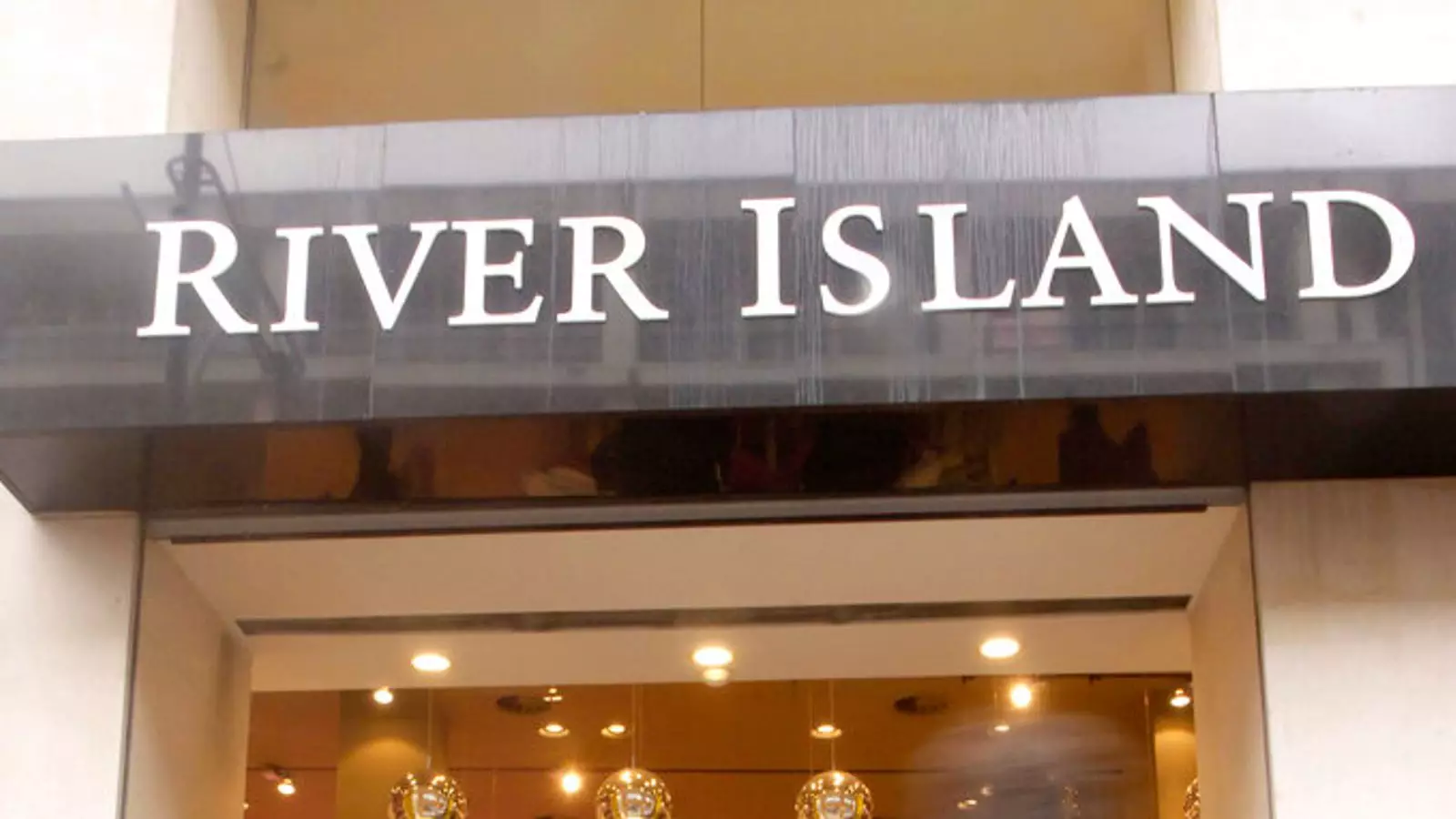In a bold but troubling turn of events, River Island, one of the stalwarts of British high street fashion, is grappling with a financial crisis that may leave a significant mark on both its operations and its employees. The fashion chain’s owners have reportedly engaged PricewaterhouseCoopers (PwC) to devise a radical restructuring plan, which is anticipated to put numerous stores at risk and potentially eliminate countless jobs. River Island’s predicament is not just a symptom of individual mismanagement but rather an acute reflection of the broader crises afflicting the retail landscape.
When we consider the history of River Island, we see a brand that has, since its inception in 1948, successfully adapted to the massive shifts in consumer preferences and fashion paradigms. However, the retail sector’s current turbulent climate poses formidable challenges. With a staggering pre-tax loss of £33.2 million and a significant turnover decrease of over 19%—down to £578.1 million—these figures paint a grim picture of a once-thriving business now teetering on the brink.
A Retail Landscape in Turmoil
The broader retail environment has become increasingly hostile, resonating through the vibrations of changing consumer behavior, economic uncertainty, and geopolitical turmoil. It’s not just River Island; a wave of retail giants, from casual dining chains to discount stores, are relentlessly feeling the squeeze. With consumer preferences rapidly shifting towards online and hyper-convenient shopping models, traditional brick-and-mortar retailers are struggling to keep up, often leading to substantial losses, store closures, and loss of jobs.
The words of River Island Holdings Limited echo a reality we cannot ignore: “The market for retailing of fashion clothing is fast changing.” This admission points to more than just a superficial acknowledgment of trends; it signifies a critical recognition of the need for transformation amid existential threats. The economic landscape, punctuated by rising inflation, persistent supply chain disruptions, and the staggering increases in energy prices, has resulted in plummeting consumer confidence. The stakes could not be higher; failure to adapt could lead to devastating outcomes.
The Reality of Corporate Restructuring
A restructuring plan might offer River Island a fighting chance to realign and reposition itself, although it could come at a significant cost to its employees. We must question the ethics of such corporate maneuvers, especially when encountering desperate restructuring avenues that impact human lives. While some companies successfully navigate such processes—think of the turnaround strategies adopted by others like Prezzo and Hobbycraft—the cost often translates into store closures and job losses.
Current negotiations, however, remain fraught with uncertainty. Though initial plans and discussions are in the works, it isn’t clear how many stores and jobs will be sacrificed in the name of salvaging the brand. It prompts an essential dialogue about the broader implications of these choices not only for employees but for families and communities dependent on their local high streets.
Political Underpinnings and an Unforgiving Environment
As River Island navigates this treacherous terrain, it’s crucial to recognize the political context that has exacerbated these challenges. Recent tax changes, fiercely criticized by retailers, have underscored the unyielding pressure from policymakers that pushes struggling brands toward the brink of insolvency. Fashion retailers, already beset with financial challenges, are at the mercy of governing bodies who often wield a heavy hand with little consideration for the consequences felt on the ground.
With political actors like Rachel Reeves making sweeping decisions in recent Budgets, the path forward appears increasingly hard to navigate. The irony stands stark: as government policies tighten their grip, many familiar brands vanish or drastically downsize. In a society that prides itself on entrepreneurship and localized economies, the plight faced by River Island is an indictment of systemic failures in understanding the needs of the retail sector.
This distressing saga of River Island serves as a clarion call for a more compassionate and responsive approach towards the retail landscape, where the human element cannot be sidelined in the rush toward looming transformations. Instead of merely navigating crises, it’s time to foster resilience and innovation that honors both employees and customers alike. As the sun sets on the traditional high street, let us contemplate a future where brands thrive not on the whims of restructuring but through genuine, sustainable transformation.


Leave a Reply